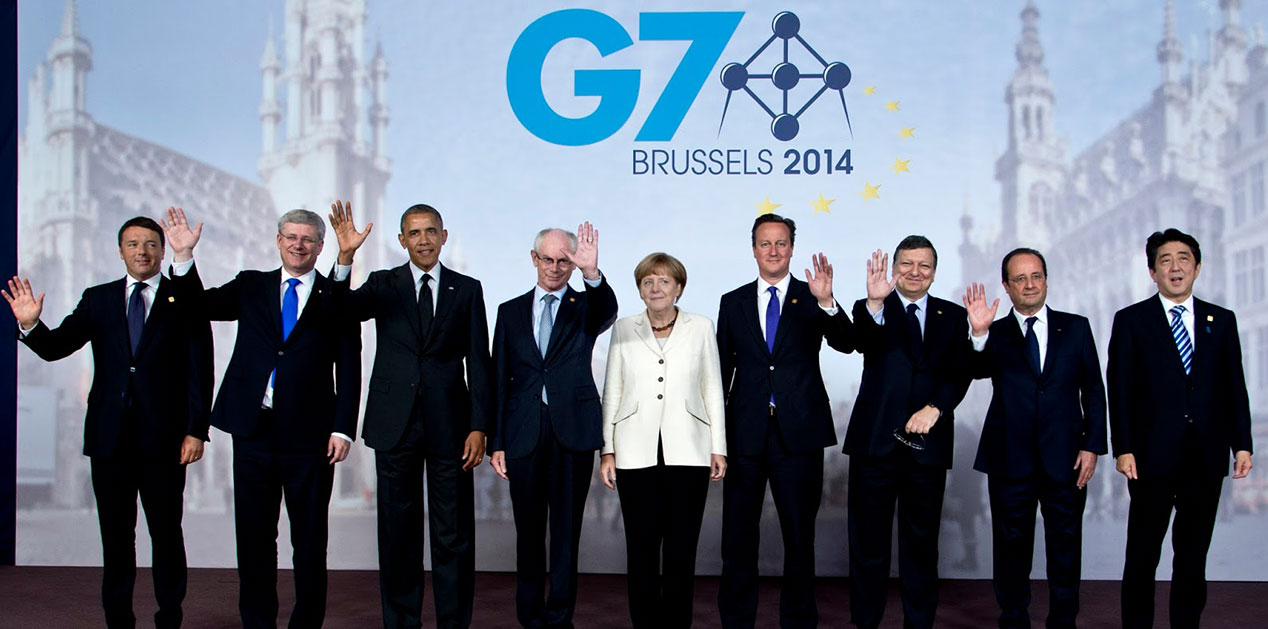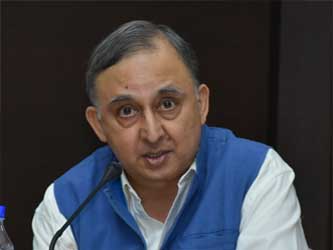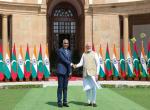Pakistan High Commissioner in New Delhi, Abdul Basit’s April 7, 2016 reply to a question regarding the meeting of the Foreign Secretaries that, "There is no meeting scheduled for now. I think at present the peace process is suspended", has led to a major analysis of “whodunit”. Most commentators have pointed out to the Pakistan Army as being the ‘culprits’ for calling off the talks while others, including the Pak Foreign Office and now the Foreign Affairs Adviser Sartaj Aziz, have been quick to assert that ‘suspended’ does not mean ‘called off’.
Whether this is just semantics or whether it is reflective of Pakistan doing damage control after its envoy’s statement or is it Islamabad’s way of trying to salvage the Comprehensive Dialogue Process (renamed as such in December from the earlier Composite Dialogue process) is debatable.
Conventional wisdom would point to the Army playing their natural and predictable game of being spoilers when they are not party to the Indo-Pak dialogue. This time many assumed that with NSA Lt Gen (R) Janjua being involved in the dialogue process, the Army would look more benignly. In the event, if the Army pulled the plug, then clearly this was not so.
However, if the pause mode of the talks is seen from the perspective of developments within Pakistan, it could well be that this time around it has been the civil government of Nawaz Sharif that has pulled the plug.
Let us look at the evidence.
The Foreign Secretary-level talks scheduled for January 14-15, 2016 had to be rescheduled, with ‘mutual consent’ due to the January 2, 2016 JeM terrorists attack on the Pathankot Air force Base. Attacks on India's consulate in Mazar-e-Sharif on January 03 and an explosion near India's mission in Jalalabad on January 05, 2016 followed in quick succession. This was clearly the handiwork of the Pak Army, not happy with the sudden visit of the PM Modi to Lahore on December 25, 2015 from which it was excluded.
In the immediate aftermath of the Pathankot attack, the portents for the talks were not all that dismal. India sent "specific and actionable evidence" to the Pakistani authorities to bring the perpetrators to book. Pakistan responded by assuring to investigate the matter and filing an FIR in Gujranwala in February against unknown terrorists. Implicit in this was the acknowledgement that the terrorists had come from Pakistan. It then sent a joint investigation team (JIT) to India at March-end to probe the attack. The JIT visited the “crime scene” in Pathankot but, after its return to Pakistan, there were media leaks that witnesses from the Indian security forces were not produced before the probe team and that the attack itself was masterminded by India. Thereafter, Abdul Basit on April 7 made his ‘suspended’ statement and discounted the possibility of a reciprocal visit by an NIA team to Islamabad.
What accounts for this turnaround between the arrival of the JIT on March 27 and Basit’s April 7, 2016 statement?
To analyse this, three events in Pakistan are noteworthy- the March 27, Easter Sunday suicide attack in Gulshan-i-Iqbal, Lahore, in which over 70 people lost their lives; the March 29, press conference of the ISPR about K Jadhav, an alleged Indian spy; April 3, 2016, the first news about the Panama Papers involving the sons of Nawaz Sharif starts to trickle in.
The impact of the March 27 terror attack in Lahore, the political stronghold of the ruling Pakistan Muslim League-Nawaz (PML-N) and the core area of the Pakistani state, was catastrophic for both the Army and the government. The responsibility for the attack was claimed by a breakaway faction of the Tehrik-i-Taliban Pakistan (TTP) calling into question the efficacy of the Army’s 2-year old operation Zarb-e-Azb against it and Army Chief Raheel Sharif’s personal reputation and credibility.
For Nawaz Sharif and his brother Shahbaz Sharif, the CM of Punjab, the implications were as critical, calling into question their reluctance to allow an Army operation in Punjab. The Army had been repeatedly warning the Punjab government of the infestation of the province with terrorists of different hues. For example, as late February 4, 2016, during a briefing to prime minister at ISI headquarters, Raheel Sharif had emphasized that “if we want to eliminate the terrorists, Rangers and military operations are needed to be carried out in the entire country and especially in Punjab.” Neither the provincial nor the federal government paid heed to such recommendations raising doubts about their motivation to move against terrorist outfits in Punjab. It was widely believed that, given the suspected nexus between such groups and the PMLN government, the Sharif brothers were reluctant to allow any such operation for fear of such a nexus being exposed and their own legislators being apprehended. This is what happened to the PPP and MQM in Sindh.
Given the continued prevarication of the government, the Army Chief moved swiftly and decided on March 27 night, to unilaterally conduct ‘intelligence-based’ operations in Punjab. This rattled the Sharifs’ as evidenced from Nawaz cancelling his trip to the US for attending the Nuclear Security Summit and the provincial government saying that these were ‘joint operations’ with the police but the Army denying that they were joint. The new terminology of the Punjab government is that these are ‘national operations’.
For the Sharif’s, Punjab is the bastion of their support. The domination of Punjab in the federation is such that Punjab alone has enough seats to form a government in Islamabad. With elections looming in 2018, they just cannot afford to have Punjab in turmoil or the links that their party has with terrorist groups exposed.
Apart from the Army launching operations in Punjab to safeguard their own reputation, the ISPR Chief Lt Gen Asim Bajwa also announced in a March 29 joint press conference with the Information Minister Pervez Rashid, the capture of an alleged India spy Kulbhushan Jadhav. The ham-headed video of Jadhav showed that it had been hurriedly put together, possibly after the March 27 Lahore attack. Though it convinced no one internationally, it sought to serve two domestic purposes: divert attention from the question marks being raised about the effectiveness of Zarb-e-Azb and to signal to Nawaz Sharif that Pakistan now had equivalence on terrorism with India and so the talks as well as the JIT, then in Pathankot, needed to be tweaked accordingly.
If the Punjab operation was not enough, the bomb-shell of the Panama Papers on April 03 with every day exposure of the financial empire of Nawaz’s sons in shady off-shore companies was the last straw for Nawaz. Even if Nawaz’s complicity has not so far been legally proven, his moral culpability in public perception will be very difficult to rectify, especially with Imran Khan breathing down his neck and threatening another ‘dharna’. At the back of Nawaz’s mind would be the frequent statements of the Army Chief Raheel Sharif on the nexus between terrorism and corruption. For example, as late as April 12, 2016 while addressing a seminar in Gwadar, Gen Raheel said the Operation Zarb-e-Azb was not only an operation but a “wholesome concept” aimed at breaking the syndicate of terrorism, extremism and corruption. As if on cue, Nawaz Sharif left for London on April 13 for a ‘medical check-up’.
For these reasons, Nawaz probably decided to ‘pause’ his India policy and sacrifice the dialogue, perhaps temporarily, as a sop to the army and gain breathing space. Hence, Basit’s carefully chosen words of suspension, words that were repeated in the recent interview of Sartaj Aziz in which he said he was hopeful that a dialogue will begin soon especially since the composite dialogue included one group that dealt with terrorism.
The Army, of course, would not be too unhappy with the dialogue being paused till it has been satisfactorily tweaked to include the ‘confessions’ of Jadhav. However, since Kashmir is very much on the agenda of the Foreign Secretary talks, it would not serve their interests to have the dialogue postponed indefinitely. There would be international ramifications of not talking to India, a complication that the Army would like to avoid.
It remains to be seen if and how soon Nawaz will feel ‘strong enough’ to resume the dialogue process. His goal-post would be to ensure that the Indian PM attends the SAARC summit later in the year. Sartaj Aziz’s expectations that in the coming days, there will be opportunities for the two foreign secretaries to meet and work out at least the time schedule on when the dialogue will start could be one indicator of this. What the Pak JIT report comes up with could be another.
The author retired as Special Secretary in the Cabinet Secretariat, Government of India.
Published Date: 5th May 2016, Image Source: http://www.dawn.com
(Disclaimer: The views and opinions expressed in this article are those of the author and do not necessarily reflect the official policy or position of the Vivekananda International Foundation)











Post new comment